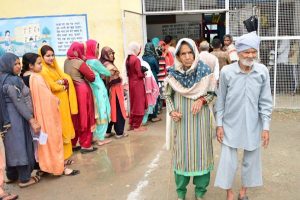Two Reuters reporters who documented a massacre of Rohingya Muslims will face trial for violating the Official Secrets Act after they were arrested with papers handed to them by police, a Myanmar judge ruled on Wednesday.
Judge Ye Lwin, who heard testimony from 17 prosecution witnesses over three months of preliminary hearings, ruled that there was enough evidence to proceed with the case against Kyaw Soe Oo and Wa Lone, the New York Times reported.
Following the verdict, the reporters were escorted from the court by police as dozens of people outside gathered expressed disappointment.
Wearing handcuffs and flashing the thumbs-up sign, Wa Lone, who turned 32 on Wednesday, said: “I have a question to the government. Where is the truth?”
“Journalists (might) get 14 years in prison. The killers got only 10 years. I want to ask government, whether (this is) in line with a democracy system or not,” he added, referring to violations of the colonial-era Official Secrets Act that carries prison sentences of up to 14 years.
In a case that has provoked international condemnation, the two were arrested on December 12 while they were investigating the massacre of 10 Rohingya civilians in the Rakhine State village of Inn Din.
The massacre occurred in August during violent attacks on Rohingya Muslims by Myanmar’s military and local Buddhist mobs that drove at least 700,000 Rohingyas refugees into neighbouring Bangladesh in what was broadly seen as “calculated ethnic cleansing”.
In uncovering the massacre, the two reporters obtained photos of the 10 victims kneeling before their execution with their hands tied behind their backs. They also found the mass grave where the victims were buried.
The judge’s decision came barely 12 hours after the military announced that four Army officers and three soldiers had been sentenced to 10 years with hard labour for their roles in the massacre.
The two journalists are due in court again on April 20, which will be their 13th court appearance since their arrests on in Yangon on suspicion of receiving secret documents from police related to the conflict-torn Rakhine state.
The Myanmar Army has denied most allegations of abuse against the Rohingyas despite worldwide condemnation.
The EU said the reporters’ continued imprisonment amounted to “serious intimidation against journalists doing their jobs in Myanmar”.
Over 80 per cent of government documents are considered confidential under the Official Secrets Act, according to Myint Kyaw, a member of the Myanmar Press Council. He said the judge’s ruling demonstrated the influence that the military exerted over the judiciary and society.











